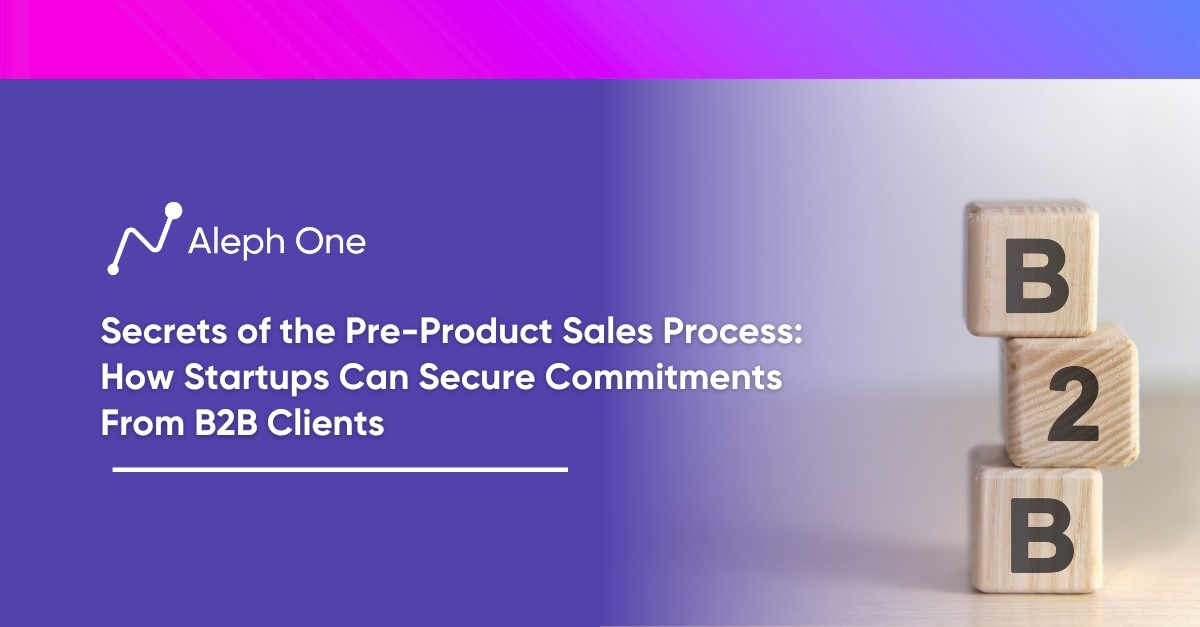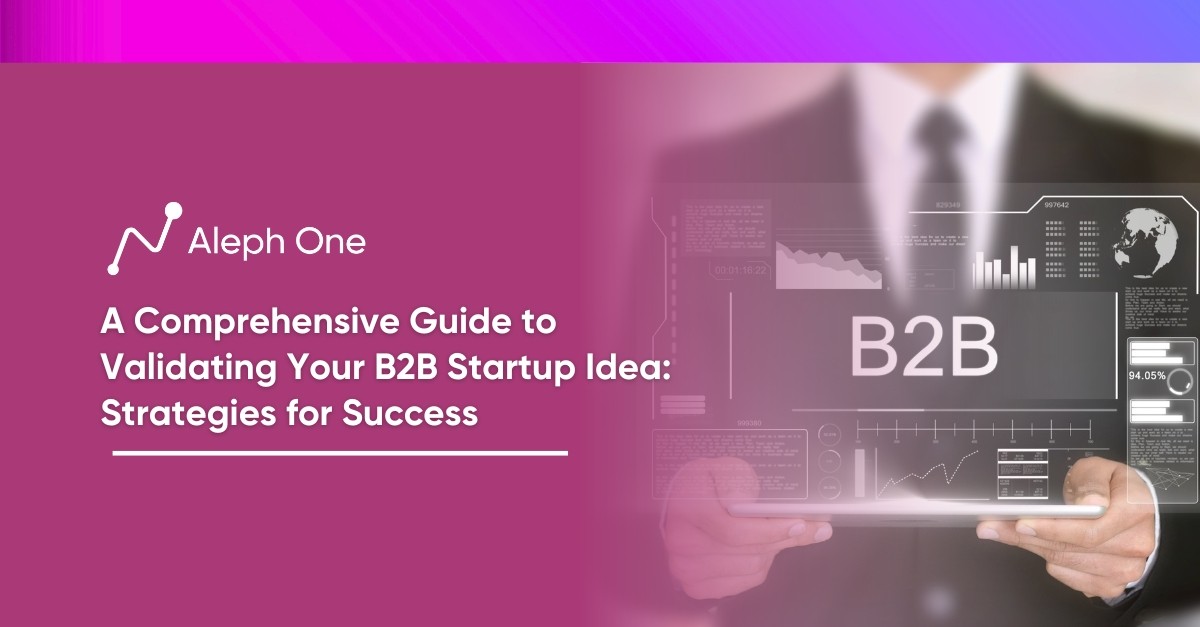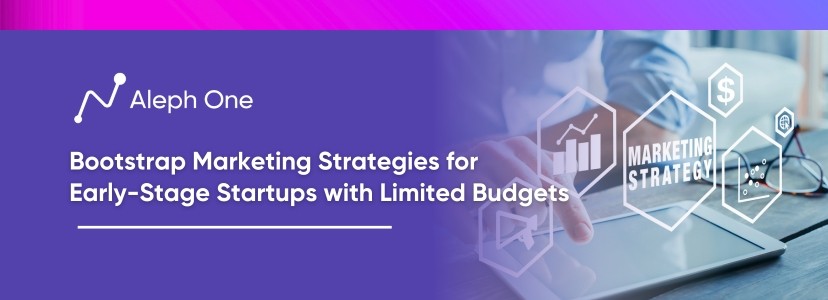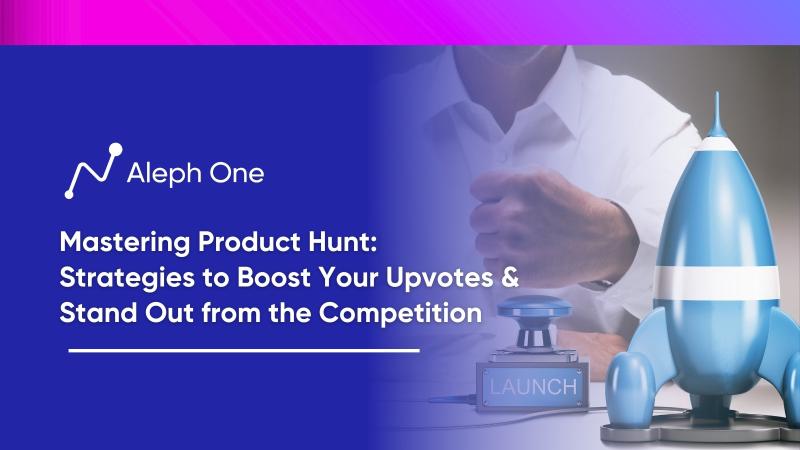Let’s work together to build something amazing. Share your project details and our team will reply to figure out the next steps to your success.

B2B startups often find themselves trapped in a “chicken and egg” situation: they need customers to build their products, but they need a product to attract customers. This article explores the crucial role of securing early customer commitments, such as letters of intent or pilot projects, in overcoming this challenge. By gaining customer validation and buy-in before the product is developed, startups can demonstrate market demand and secure the necessary funding, resources, and talent.

The Pre-Product Challenge: Why Securing Early Customers Is Crucial for B2B Startups
According to CB Insights, 42% of startups fail because there is no market need for their product. However, with a proven solution or case studies demonstrating value, B2B startups can attract initial clients and gain market traction. Here are some tips startups can use to attract customers.
Secure Letters of Intent
Securing letters of intent, pilot projects, or other commitments from early customers is critical to overcoming this challenge. By gaining customer validation and buy-in before the product is built, startups can prove market demand and the viability of their vision. This allows them to achieve the funding, resources, and talent needed to create a solution.
Early Customer Commitments
Early customer commitments leverage startups to gain exposure, attract investors, hire top talent, and land additional clients. With funding and a growing team, the startup can focus on developing a product that matches customers’ needs. This approach allows startups to scale at an accelerated pace.
In contrast, startups that spend months or years building a product in isolation often launch and need help finding people interested in buying it. By that point, financial resources and morale are depleted, making it difficult to pivot and recover.
How to Secure Early Customers
The key to securing early customers is to deeply understand their priorities and pain points, build a persuasive pre-product pitch, provide an exceptional customer experience, and simplify the commitment process. Startups should focus on conveying their vision and the problems they aim to solve rather than pitching product features that still need to be created.
With a compelling pitch, startups can turn initial interest into pilot projects, letters of intent, crowdfunding or other commitments that will enable them to build solutions that customers genuinely want and need.
Getting Into the Customer’s Mind: Understand Their Pain Points and Priorities
To craft a pre-product pitch, B2B startups must develop a deep understanding of their target clients’ challenges, priorities, and buying processes. The only way to gain these customer insights is through direct outreach and interaction. Conducting customer interviews, surveys, and on-site observations are effective strategies for understanding customer pain points and needs.
How Startups Success with Customer Research
Some of the most successful B2B startups built their products after conducting in-depth customer research and identifying a clearly defined problem to solve. For example, Zenefits founder Parker Conrad interviewed over 100 small business owners to discover their biggest HR challenges before designing an automated SaaS solution. Qualtrics founders Ryan and Jared Smith spent years meeting with business leaders to pinpoint their need for an easy-to-use customer and employee insights platform.
Following the Customer Buying Journey
B2B startups should understand the typical buying processes of their target clients. Larger enterprise clients often require multiple approvals. Startups pitching these clients must navigate long sales processes and build a strong business case to convince stakeholders. Small and mid-sized businesses usually have simpler buying processes emphasizing immediate problems and solutions. Startups can tailor their pre-product pitch accordingly.
Build Your MVP Pitch: Focus on Problems, Not Products
The key to securing pre-product commitments is crafting a compelling minimum viable product (MVP) pitch focusing on the problems you will solve, not the product specifications or features. You don’t have a product to demonstrate at this stage, so your pitch must resonate with clients by highlighting their pressing issues and your vision for solving them.
Storytelling and Case Studies
Rather than leading with technical details, bring the problems you’ve identified to life through storytelling and case studies. Discuss the impacts and costs of these problems, and convey your passion for solving them. Explain your solution at a high level, focusing on the key benefits and outcomes for clients rather than product features. You aim to excite clients about the possibilities, not bogged down in the details.
Have a Clearly Defined Pain Point
Some of the most persuasive MVP pitches come from startups solving a clearly defined pain point in a new and compelling way. For example, Gusto (formerly ZenPayroll) pitched the hassle and complexity of payroll for small businesses. Stripe pitched the difficulty of accepting online payments. And Gong.io pitched the inability of sales teams to learn from their customer interactions. These startups succeeded because their MVP pitch resonated with a specific customer pain point and offered a vision for solving it.
MVP Pitch Benefits
An MVP pitch is a startup’s most important tool for securing pre-product commitments. By crafting a simple, persuasive story focused on problems and solutions rather than technical details, B2B startups can connect with clients, convey their vision, and gain the commitments they need to build a product that resonates in the market.
Creating a Memorable Customer Experience
For B2B startups, delivering an exceptional customer experience is critical to turning initial interest into lasting commitments, even without a proven product. By focusing on high-touch customer service, transparent communication, and conveying genuine passion for their vision, startups can build the personal connections and trust required to secure early customers.
Assign Dedicated Account Managers
Startups should assign dedicated account managers to each potential client, providing a single point of contact to address questions and concerns. These managers should communicate proactively and frequently, setting proper expectations about what the startup can deliver and by when. They should convey enthusiasm for solving the customer’s problems, helping the client visualize the future benefits of the partnership.
Be Transparent
Transparency about the startup’s progress, challenges, and critical milestones is essential for building trust. Clients will understand that setbacks are inevitable in the development process but want visibility into what’s happening behind the scenes. Startups should share updates on product development, funding goals, new talent acquisition, and other key events to make clients feel invested in their journey.
Service and Support
While the product may still be in early development, startups can provide value through exceptional service and support. They should develop a personal relationship with each client, understanding key priorities, challenges, and processes in depth. Startups can offer additional services like needs assessment, cost-benefit analysis, and product road mapping to demonstrate their knowledge and value add.
Maintain Momentum
When obstacles or delays arise, startups must maintain momentum to prevent clients from disengaging or losing interest. They should double down on communication, set up in-person meetings and find other ways to reaffirm the value of the partnership. While the startup works to overcome challenges, they can co-develop product specs, discuss pilot programs or plan future marketing collaborations with the client to keep them engaged.
With a memorable customer experience, transparent communication, and dedicated service, B2B startups can turn initial interest into lasting customer commitments and loyal brand advocates.
Securing Early Wins: Turning Interested Into Commitments
Once B2B startups have generated initial customer interest through their MVP pitch and memorable pre-product experience, the next step is turning that interest into firm commitments. These early wins are crucial for gaining the leverage and resources to build your product.
Incentives, Memorandums, and Crowdfunding
Startups should make the commitment process simple, easy, and risk-free for early clients. Offer special incentives or discounts for the first customers who commit to a pilot or trial program. Ask for a letter of intent or memorandum of understanding to officially express interest in partnering once the product is ready. Crowdfunding campaigns are also helpful for securing early financial commitments from business clients.
Low Commitment
The key is to ask for the least amount of commitment needed to move forward while still gaining a win that can be leveraged. Don’t require long-term contracts or large upfront payments before you have a product to deliver. Make it easy for clients to commit so they have little reason to say no.
Have Close Communication
Once you have secured initial commitments, don’t rest on your laurels. Maintaining close communication with committed clients strengthens the relationship and encourages continued enthusiasm. Ask happy early customers for introductions to others in their network. Their testimonials and referrals can help to gain additional commitments quickly.
Leverage Social Media and Content Marketing
Leverage your early wins through social media, PR, and content marketing. Promote case studies, testimonials, and media coverage highlighting your committed partners. Their public support and validation will build credibility for your startup and attract new clients.
While gaining commitments without a product is challenging, startups that turn interested into early wins gain powerful leverage to scale their business. Responsibilities lead to funding, talent acquisition, product development, and future growth. With the support of initial customers and the capital behind them, startups can focus on delivering an exceptional product and client experience. Their first clients become their most prominent advocates and help the company achieve exponential growth.
Leveraging Your Wins: How Commitments Lead to Funding and Growth
Securing early customer commitments is a pivotal milestone for B2B startups, providing leverage to gain additional resources and scale the business. To build momentum, startups should leverage these wins through social media, PR, testimonials, and case studies.
Seed Funding & Venture Capital
With customer commitments in hand, startups have validation of their vision and solution, which is attractive to investors. Startups can use this leverage to gain seed funding or venture capital to build their product and team. They have proof of interest in the market, and the budget will allow them to capitalize on this opportunity.
Promote Customer Commitment on Social Media
Startups should also promote their customer commitments on social media. This exposure can lead to new clients, talent, and partners. People want to join exciting companies and projects that have traction. Success attracts success.
Customer Testimonials
Using customer testimonials, case studies, and stories in sales and marketing materials builds credibility and trust in the startup’s vision. Based on these examples, new clients will have confidence in the company’s ability to solve their problems. Startups can ask early customers for introductions to others in their network to start a word-of-mouth chain reaction.
Scaling the Startup
With funding and exposure gained from initial customers, startups can scale their businesses. They can build their product to suit market needs, expand their team, and improve their sales and marketing processes. They have a proven model and track record of success to share. This momentum allows startups to accelerate growth and gain new clients exponentially.
Secure Early Customers For Your Startup
Securing early customer commitments is vital for B2B startups, providing leverage to gain funding, exposure, resources, and new clients to scale their business. With a few critical wins, startups can achieve exponential growth and success. The challenge is getting those first customers on board, but with the right pitch and customer experience, any startup can turn interested into lasting commitments.
Get the latest news and updates from Aleph One in your inbox.



